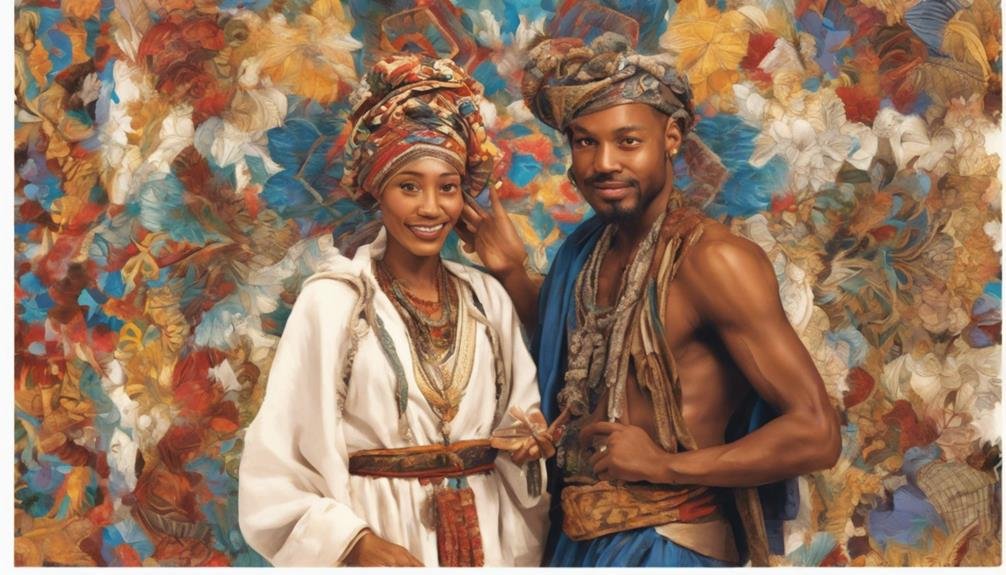Cross-Cultural Studies of Personality: An Overview
Did you know that cross-cultural studies have revealed that up to 50% of personality traits are influenced by cultural factors? Understanding how different cultures shape personalities can provide valuable insights into human behavior and interactions. As you explore the intricate relationship between culture and personality, you will uncover fascinating discoveries that challenge conventional beliefs and broaden your perspective on the complexities of human nature. By delving deeper into cross-cultural studies of personality, you will gain a deeper appreciation for the diversity and richness of human experiences across the globe.
Key Takeaways
- Cultural studies reveal diverse influences on personality traits.
- Trait theory adapts to cultural variations in personality research.
- Cultural norms shape emotional expression and behavior patterns.
- Methodologies compare universal and culturally specific traits.
- Cross-cultural studies promote global empathy and cooperation.
Importance of Cross-Cultural Studies
Exploring the significance of cross-cultural studies in understanding the complexities of human personality reveals the intricate interplay between societal norms and individual traits. Cultural diversity plays a vital role in shaping psychological differences among individuals. These studies provide a unique lens through which to analyze how cultural backgrounds influence an individual's personality development and expression.
By comparing various cultural groups, researchers can identify commonalities and differences in personality traits. Understanding these variations sheds light on the impact of societal values, beliefs, and practices on shaping individuals' behavior and thought patterns. Cross-cultural studies highlight the importance of considering cultural context when evaluating personality traits, emphasizing that what may be considered a desirable trait in one culture could be viewed differently in another.
Moreover, these studies help challenge ethnocentric views and promote a more inclusive understanding of human personality. By recognizing and appreciating the diversity of cultural influences on personality, researchers can gain deeper insights into the complexities of human behavior across different societies.
Key Concepts in Personality Research
Understanding key concepts in personality research is essential for unraveling the complexities of human behavior and thought patterns. One of the fundamental frameworks in personality research is trait theory, which suggests that individuals possess a set of enduring characteristics that shape their behavior across situations. This theory helps researchers classify and analyze personality traits to understand individual differences.
When considering cultural differences in personality research, it becomes evident that certain traits may be valued differently across cultures. For example, traits like assertiveness or collectivism may be more pronounced in specific cultural settings, influencing how individuals interact with others and perceive themselves. Recognizing these cultural variations is vital for developing a holistic understanding of personality that transcends geographical boundaries.
Cultural Influences on Personality Development
Cultural influences play a significant role in shaping individual personality development, impacting various aspects of behavior and thought patterns. The ongoing debate of nature versus nurture highlights how cultural norms and societal expectations contribute to the formation of personality traits.
In many cultures, values such as collectivism or individualism greatly influence how individuals perceive themselves and interact with others. For example, in collectivistic societies, where group harmony is highly valued, individuals may exhibit traits like loyalty and obedience more prominently than in individualistic cultures that prioritize personal goals and independence.
Moreover, cultural influences can shape the way individuals express emotions, communicate, and handle conflicts. For instance, in some cultures, expressing emotions openly may be encouraged, while in others, it could be seen as a sign of weakness. These variations in cultural norms contribute to the diversity observed in personality traits across different societies.
Understanding how cultural influences impact personality development is essential for appreciating the complexity and richness of human behavior worldwide.
Methodologies in Cross-Cultural Studies
Researchers commonly employ diverse methodologies to investigate the impact of cultural differences on personality traits across various societies. Comparative analysis is an important aspect of these studies, allowing researchers to analyze how cultural factors shape personality in different populations. Research design plays a significant role in ensuring the validity and reliability of cross-cultural studies. By comparing findings across cultures, researchers can identify universal traits as well as culturally specific ones. Here is a table showcasing some common methodologies used in cross-cultural studies:
| Methodology | Description | Advantages | Disadvantages |
|---|---|---|---|
| Surveys | Questionnaires to gather data on personality | Efficient data collection | Response bias possible |
| Interviews | In-depth discussions on personality traits | Rich qualitative data | Time-consuming |
| Observations | Directly observing behavior in different cultures | Real-life data collection | Observer bias |
Implications for Global Understanding
To comprehend the broader implications of cross-cultural studies on personality, it's essential to explore how these findings contribute to a more interconnected global perspective. Cultural diversity plays a pivotal role in shaping individual personalities, and understanding this diversity fosters empathy towards people from different backgrounds. By recognizing and appreciating cultural differences, individuals can develop a deeper sense of empathy and connection with others, ultimately leading to a more essential global society.
- Cultural Diversity: Cross-cultural studies highlight the vast array of cultural practices and beliefs worldwide, emphasizing the richness of human diversity.
- Empathy: Exploring personality differences across cultures enhances empathy by promoting a better understanding of the experiences and perspectives of individuals from various cultural backgrounds.
- Societal Norms and Communication: These studies shed light on how societal norms influence personality development and how effective communication strategies can bridge cultural divides. Understanding these factors is fundamental for promoting effective intercultural communication and fostering global cooperation.
Conclusion
To sum up, cross-cultural studies of personality offer a valuable perspective on how cultural backgrounds shape individual traits and behaviors. By exploring the intricate interplay between culture and personality development, researchers can uncover commonalities and differences across diverse societies.
These studies challenge ethnocentric views and promote a more inclusive understanding of human complexities. In a world where cultures collide and intersect, the significance of cross-cultural studies can't be overstated as they pave the way for greater empathy and understanding among global communities.







